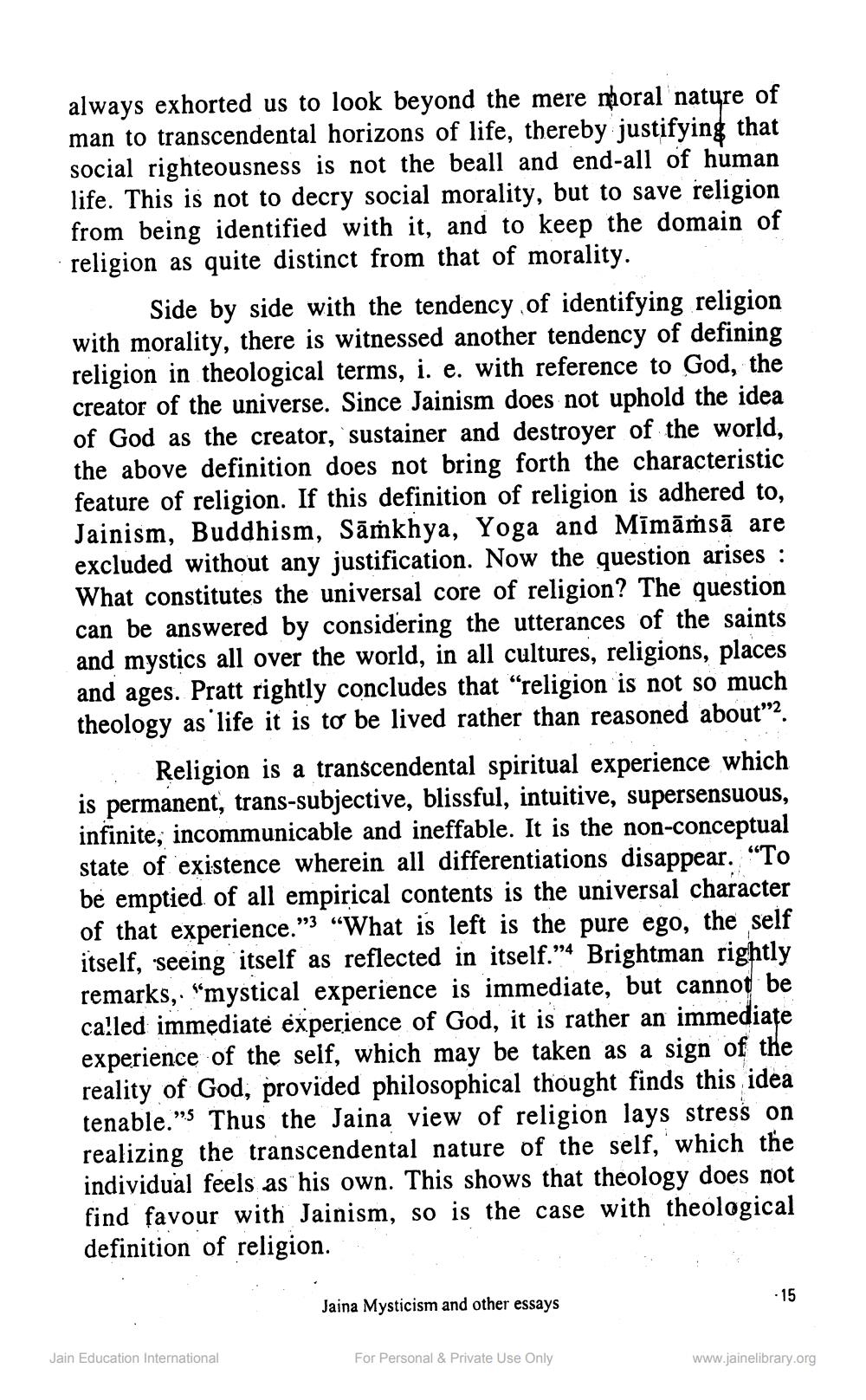________________
always exhorted us to look beyond the mere moral nature of man to transcendental horizons of life, thereby justifying that social righteousness is not the beall and end-all of human life. This is not to decry social morality, but to save religion from being identified with it, and to keep the domain of religion as quite distinct from that of morality.
Side by side with the tendency of identifying religion with morality, there is witnessed another tendency of defining religion in theological terms, i. e. with reference to God, the creator of the universe. Since Jainism does not uphold the idea of God as the creator, sustainer and destroyer of the world, the above definition does not bring forth the characteristic feature of religion. If this definition of religion is adhered to, Jainism, Buddhism, Sāṁkhya, Yoga and Mīmāṁsā are excluded without any justification. Now the question arises : What constitutes the universal core of religion? The question can be answered by considering the utterances of the saints and mystics all over the world, in all cultures, religions, places and ages. Pratt rightly concludes that “religion is not so much theology as 'life it is to be lived rather than reasoned about"2.
Religion is a transcendental spiritual experience which is permanent, trans-subjective, blissful, intuitive, supersensuous, infinite, incommunicable and ineffable. It is the non-conceptual state of existence wherein all differentiations disappear. “To be emptied of all empirical contents is the universal character of that experience."3 “What is left is the pure ego, the self itself, seeing itself as reflected in itself.”4 Brightman rightly remarks, “mystical experience is immediate, but cannot be called immediate experience of God, it is rather an immediate experience of the self, which may be taken as a sign of the reality of God, provided philosophical thought finds this idea tenable." Thus the Jaina view of religion lays stress on realizing the transcendental nature of the self, which the individual feels as his own. This shows that theology does not find favour with Jainism, so is the case with theological definition of religion.
Jaina Mysticism and other essays
.15
Jain Education International
For Personal & Private Use Only
www.jainelibrary.org




